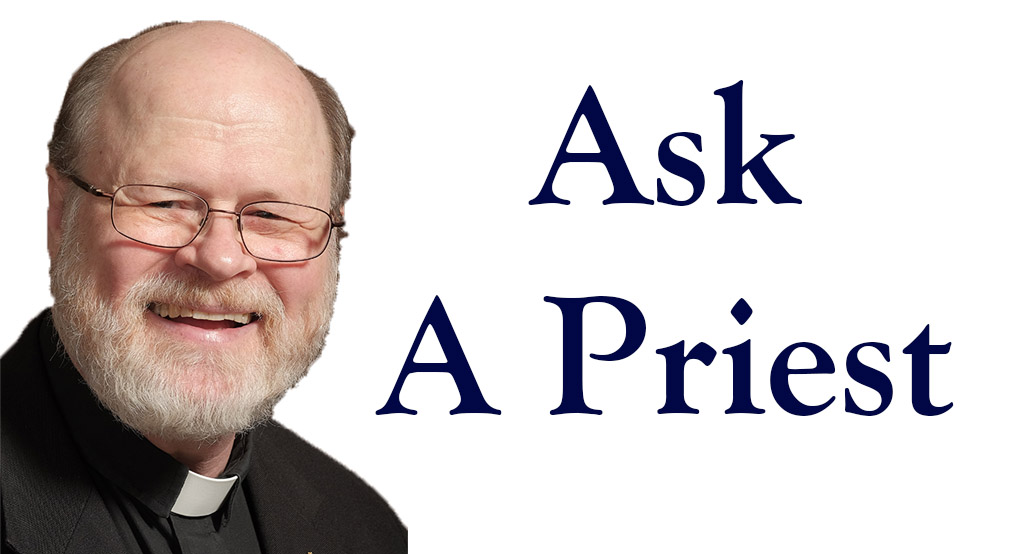Question: Why is same-sex marriage not allowed in the Catholic Church? Is homosexuality considered a sin?
Answer From: Fr. Stephen
Response:
Thank you for these timely and relevant questions. Please allow me to begin by addressing your second question first.
People often say that “the Church is against homosexuality.” This is somewhat of an oversimplification. From the Catechism of the Catholic Church (par. #’s 2357-2359) we understand that:
- Homosexuality does exist
- It is not new, nor restricted to one culture, one time period, or even one form
- Its psychological genesis remains largely unexplained
- It can be a great trial; if people with same-sex attraction are Christian, they are called, as we are all called, to submit their struggles to the healing love of our crucified Lord
- Those among us with same-sex attraction are to be treated with respect, compassion, and sensitivity
- Every sign of unjust discrimination against these, our brothers and sisters, should be avoided
- All of us, with heterosexual or homosexual orientations, are called to lives of holiness and chastity
- In this respect, all of us who seek the nurture of the Church are entitled to receive it.
In an earlier document from the Congregation for the Doctrine of the Faith entitled On the Pastoral Care of Homosexual Persons (#16), we read:
The human person, made in the image and likeness of God, can hardly be adequately described by a reductionist reference to his or her sexual orientation. … Today the church provides a badly needed context for the care of the human person when she refuses to consider the person as a “heterosexual” or a “homosexual” and insists that every person has a fundamental identity: the creature of God and, by grace, his child and heir to eternal life.
Therefore, one does not speak of a homosexual, but a person with same-sex attraction. The person always comes first. As such, we do not assume what is in a person’s heart simply because he or she is attracted to persons of the same sex.
While affirming the human dignity of people with a same-sex inclination, the Catechism, nonetheless, disallows homosexual acts. While limiting its definition of these acts to genital activity, the Church deems this form of sexual expression, as it does with heterosexual pre-marital and extra-marital genital activity, to be morally wrong. The Catechism states that such homosexual acts cannot be approved under any circumstances because they
- Are contrary to natural law
- Close the sexual act to the transmission of the gift of life by their very nature
- Do not derive from the physical and emotional complementarity between men and women.
As such, to be engaged in homosexual activity is sinful, to have a same-sex inclination is not, although it can, like many of our inclinations, lead us to commit sin.
Now to your other question: Why is same-sex marriage not allowed in the Catholic Church?
The Church’s teaching on what marriage is, and what it is not, is very clear. In the Code of Canons of the Eastern Churches (#776, 1), we find the following definition of marriage (the Code for the Latin Church is similar):
The matrimonial covenant, established by the Creator and ordered by His laws, by which a man and woman by an irrevocable personal consent establish between themselves a partnership of the whole of life, is by its nature ordered toward the good of the spouses and the generation and education of the offspring.
In these words, we see the defining characteristics of a marriage:
- A lifelong partnership
- Which is freely chosen
- Between one man and one woman
- Which is established by the Creator and ordered by His laws
- For mutual support and
- For the continuation of the human race through the conjugal union of the man and the woman.
It is on this basis that the Church gives its blessing for a marriage to be considered a sacrament. And by this definition, on the other hand, the Church cannot allow for same-sex marriages.
How then are we to approach our sisters and brothers who have this inclination?
In their pastoral letter To Live in Christ Jesus: A Pastoral Reflection on the Moral Life (#52), the U.S. National Conference of Catholic Bishops underscores the tension of living a moral life as a person with same-sex attraction:
Like everyone else, [they] should not suffer from prejudice against their basic human rights. They have a right to respect, friendship, and justice [and] … like heterosexual persons, … are called to give witness to chastity, avoiding, with God’s grace, behaviour that is wrong for them … Nonetheless … the Christian community should provide them a special degree of pastoral understanding and care.
Our response then is one of welcome. They are invited to pray with us and participate in the sacraments in so far as they are able. If they are members, or have become members of our community, they are encouraged, as we all are, to offer their God-given gifts for the building up of the community.
In short, our listening hearts, prayerful presence, friendship, love and understanding for people with same-sex attraction will go a long way in helping them to deal with whatever trials they face in the light of their reality.
In the peace of Christ,
Father Stephen Wojcichowsky

